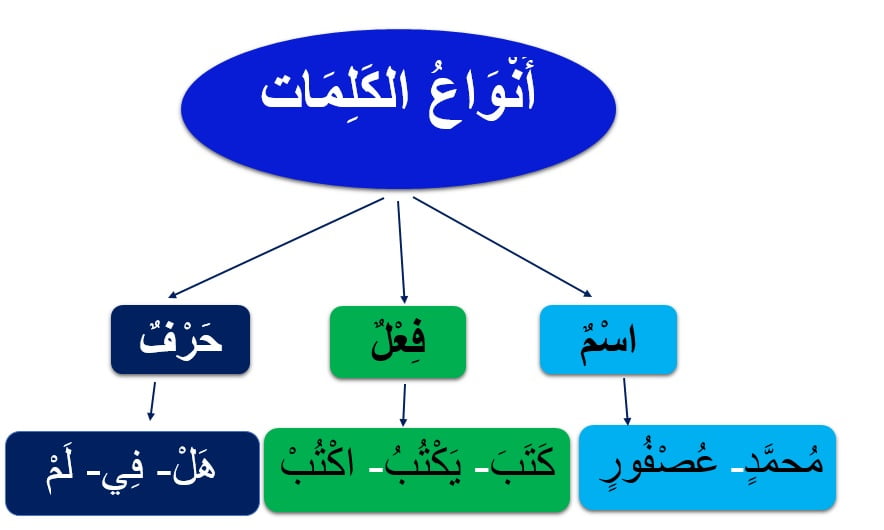
تَأْلِيْف الْكَلاَمِ
| وَمِنَ الْكَلِمَاتِ تَتَرَكَّبُ الْجُمَلُ الْمُفِيْدَةُ، وَهِيَ الْمُسَمَّاةُ بِـ”الْكَلاَمِ” From words informative sentences are constructed, and they are called “الْكَلاَم” (Speech) |
Explanation:
We know from what has gone before that all the الْكَلِمَات do not exceed three types: the الْفِعْل , the الاسْم and the الْحَرْف . It is clear that to understand what is communicated (by the speaker) is not achieved by means of one word only due to it being insufficient by itself, instead it is necessary – in order for communication to take place – that there be two or more words so that what we utter conveys a complete and self-contained message.
The sentence (الْجُمْلَة) which is composed of two or more words such that it conveys the intended and desired sense (to the listener) is called “كَلاَم” (speech), like: “الْعِلْمُ نَافِعٌ” (Knowledge is beneficial) and “الْجَهْلُ ضَارٌّ” (Ignorance is harmful).
It is not required, however, that الْكَلاَم be composed of all three types (of الْكَلِمَة ), for it is sufficient that it be composed of two nouns only, like: “عَلِيٌّ مُقْبِلٌ” (Ali is coming or approaching) or a verb and a noun, like: “فَاضَ نَهَرٌ” (a river is overflowing).
Furthermore, the الْجُمْلَة is called:
- “فِعْلِيَّة” (verbal) if its initial part is a فِعْل , like: “حَضَرَ الْمُعَلِّمُ” (The teacher was present) and “يَحْضُرُ النَّاظِرُ” (The onlooker or investigator is present), and
- “اسْمِيَّة” (nominal) if its initial part is an اسْم , like: “الأُسْتَاذُ وَاقِفٌ” (The teacher is standing) and “النَّاظِرُ يُفَتِّشُ” (The investigator is inspecting).
[Note that the occurrence of a حَرْف (particle) before the الْفِعْل or the الاسْم does not affect the status of the الْجُمْلَة as a جُمْلَة فِعْلِيَّة or a جُمْلَة اسْمِيَّة]